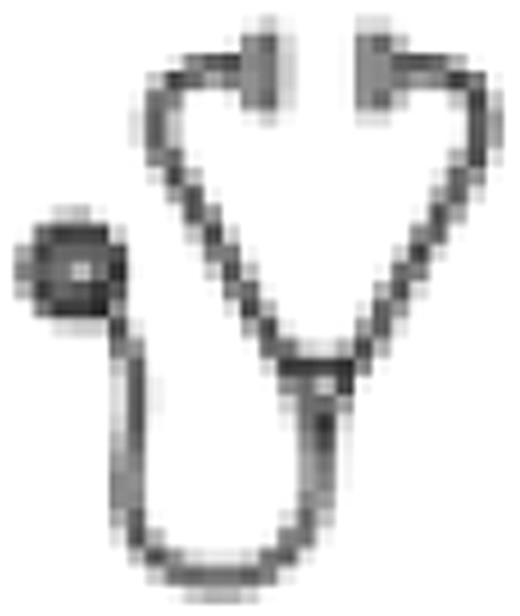Abstract
Abstract 4010
Patients with IPSS intermediate or high risk myelodysplastic syndrome (MDS) have few treatment options once their disease fails to respond to hypomethylating agent therapy. The styryl sulfone mitotic inhibitor ON 01910.Na, inhibits Polo-1 kinase, PI3-kinase and AKT pathways, and the drug has shown promising results in patients (pts) with advanced solid tumors (Jimeno et al, J Clin Onc 26:5504, 2008) and in Phase I/II studies of MDS pts, including those with trisomy 8 (Sloand at al, Proc ASH 2007, #822, Proc ASH 2008, #1651). In an ongoing Phase II clinical trial, we have treated 10 MDS pts unresponsive to at least 4 cycles (range 4–12 cycles) of hypomethylating agent therapy (5 post-azacytidine, 4 post-decitabine, and 1 pt treated with both agents) with ON 01910.Na. The pts had IPSS Intermediate-1 (n=3), Intermediate-2 (n=4) and High (n=3) risk MDS. The study cohort comprised pts with RAEB-1 (4 pts), RAEB-2 (3 pts) and RAEB-T (3 pts), with a median age of 80 years (range 65–86) and 2.3 year median (range 0.4–5.4) prior duration of MDS. Their cytogenetic profile included 5 pts with Good, 4 with Intermediate [t(8,10), t(14,18), +8, and (8+, 19+)], 1 with Poor risk cytogenetics (+8, 5q-, 1p-). At baseline, all pts were red blood cell transfusion-dependent. After the initial 2 pts were treated with 800mg/m2/day × 2day continuous IV infusion (CIVI)/week × 3weeks/month, the subsequent 8 patients received 1800mg/day × 3day CIVI q2weeks/month × 2 months, then monthly. Patients underwent bone marrow sampling and evaluation after every other cycle of treatment. To date, 7 pts have completed at least 2 cycles of therapy, with 2 pts having completed the full treatment course of 7 monthly cycles (median 4.7 for all pts). Responses according to IWG 2006 criteria were: Marrow CR (mCR) (2), Partial response (1), stable disease (SD) with hematologic improvement (HI) (2; 1 HI-E, N, 1 HI-P, N) = 5/10 overall responses (50%). Four pts had SD without HI, 1 pt progressed to AML. mCRs occurred in those with <10% marrow blasts. The 3 patients with trisomy 8 alone or with additional cytogenetic abnormalities achieved 1 mCR, 2 SD, associated with decrements in proportions of +8 karyotypes from 80% and 65% to 15% in the 2 pts with additional abnormalities. Grade 3/4 non-hematologic drug-related or possibly related toxicities occurred in 4 pts: 1 GI, 1 dysuria, 1 fatigue, 1 epistaxis; 2 pts had pulmonary infections unrelated to study drug. Two pts discontinued treatment early due to drug toxicity (1) or AML progression (1). No hematologic toxicities occurred. Nine of 10 pts remain alive (5.4 month median, range 2.5–13+) after study entry. To determine if a biologic response to ON 01910.Na treatment could be quantified, a novel nanoscale immunoassay (NIA) was used to measure changes in AKT kinase family activation in CD34+ cells isolated from the bone marrow specimens collected before and during treatment. In the subset of specimens analyzed to date, phosphorylation of AKT2 decreased by 36% in pts who had a response to therapy, suggesting that ON 01910.Na treatment altered oncogenic signaling in the MDS pts. Completion of NIA analysis will demonstrate whether changes in individual AKT isoforms (implicated in cell cycle arrest and apoptosis) occur uniquely in pts who have a clinical response to treatment. These preliminary data demonstrate encouraging efficacy and drug tolerance with ON 01910.Na in a substantial portion of higher risk MDS patients whose disease had been unresponsive to hypomethylating agent therapy. Accrual and continuing therapy for trial completion are ongoing.
Off Label Use: The drug ON01910.Na is an investigational agent. Felsher:Cell Bioscience: On The Advisory Board. Wilhelm:Onconova Therapeutics Inc: Employment, Equity Ownership. Greenberg:Onconova Therapeutics Inc: Research Funding.

This icon denotes a clinically relevant abstract
Author notes
Asterisk with author names denotes non-ASH members.

This feature is available to Subscribers Only
Sign In or Create an Account Close Modal